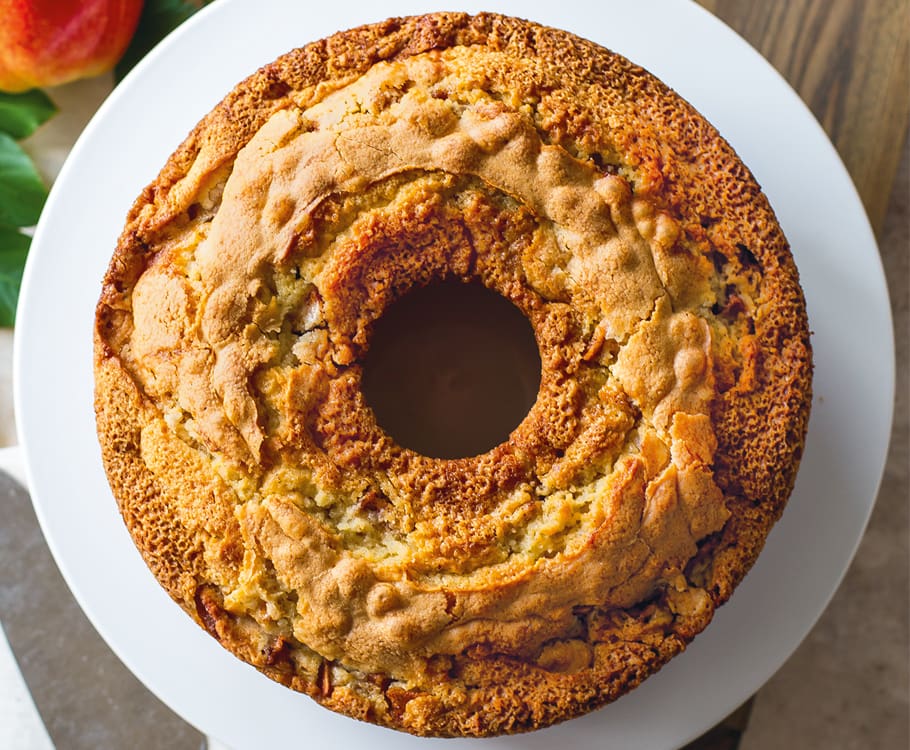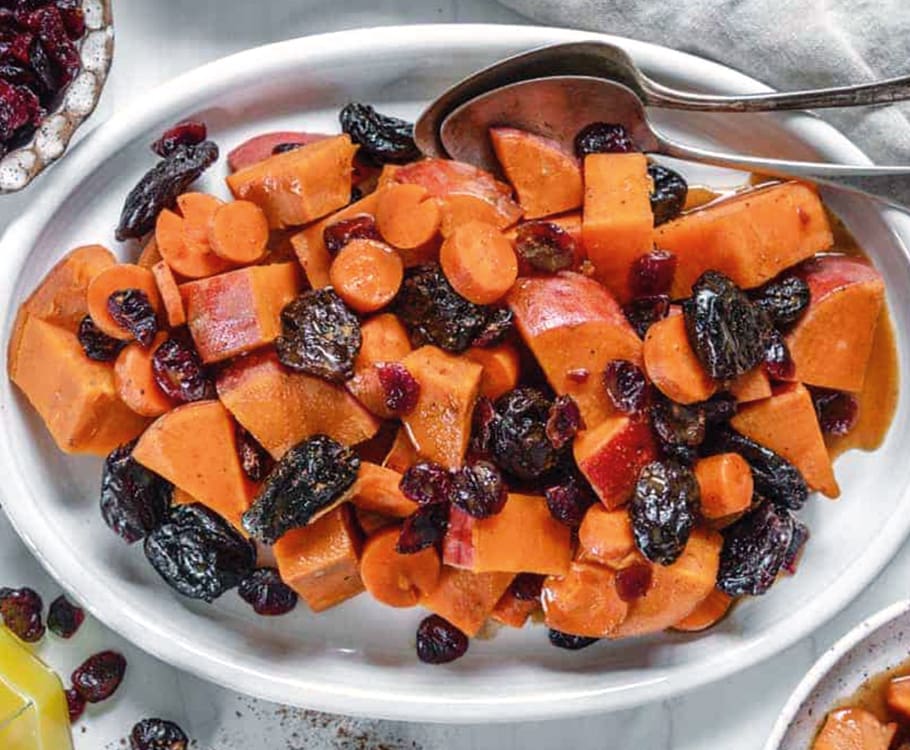For Your Table

Jewish Apple Cake
© MARYANN DWYER (THEBEACHHOUSEKITCHEN.COM)
A sweet new year
Rosh Hashanah is celebrated with food and traditions
by MILLY DAWSON
My 4-year-old, Mia, used to sing a song summing up the main food tradition of Rosh Hashanah, the Jewish New Year: “Well, I can cook. And I can bake. And I can make a honey cake. I’ll make it big and round and sweet—for Rosh Hashanah. What a treat!”
A major festival, Rosh Hashanah falls in the Hebrew month of Tishrei (TEESH-ray), during September or October. This year, it begins at sunset on September 15. During this holiday, Jews eat various sweet foods, hoping for a happy, prosperous New Year.
Honey cakes, apple cakes, and apples or chunks of challah (egg bread) dipped in honey feature prominently at festive tables. It’s the sweetness that matters, not the honey, so vegans can easily use maple syrup or molasses for holiday dipping. Tzimmes, stews of root vegetables and dried fruits, can be added to the feast.
Some also avoid nuts, which make one thirsty, to have an easier time praying for hours. For main dishes, beef briskets are often prepared with prunes and chicken dishes with apricots, the fruit adding sweetness. Many Jews also avoid sour or bitter foods, such as vinegars, pickles and horseradish.
Rosh Hashanah literally means the “head of the year.” Some people actually place on the table a fish head or a whole fish with the head on. Both are meant to remind diners to strive to be leaders in working for peace and harmony—to be as the head and not as the tail.
By far, however, the most important Rosh Hashanah custom involves the sense of hearing, not taste. That custom involves hearing a ram’s horn, or shofar, blown. It’s a riveting, strange, ancient sound. The 12th century philosopher Moses Maimonides explained that the shofar blasts were telling the people, “Rouse yourselves from your lethargy. Search your deeds … mend your ways … leave any evil path.”
Another holiday custom involves food but not eating. During a ceremony called tashlich (TOSH-leekh), which means “casting off,” Jews gather beside a body of water and symbolically reject their prior sins by throwing bits of bread into the water. Serving a round challah, rather than a long loaf, is a custom that signifies the endless cycle of the years past and those yet to come.
Milly Dawson is a Florida-based writer.
COSTCO CONNECTION: Apples, honey and other ingredients can be found in Costco warehouses. Groceries are available for delivery through Costco Grocery at Costco.ca.


